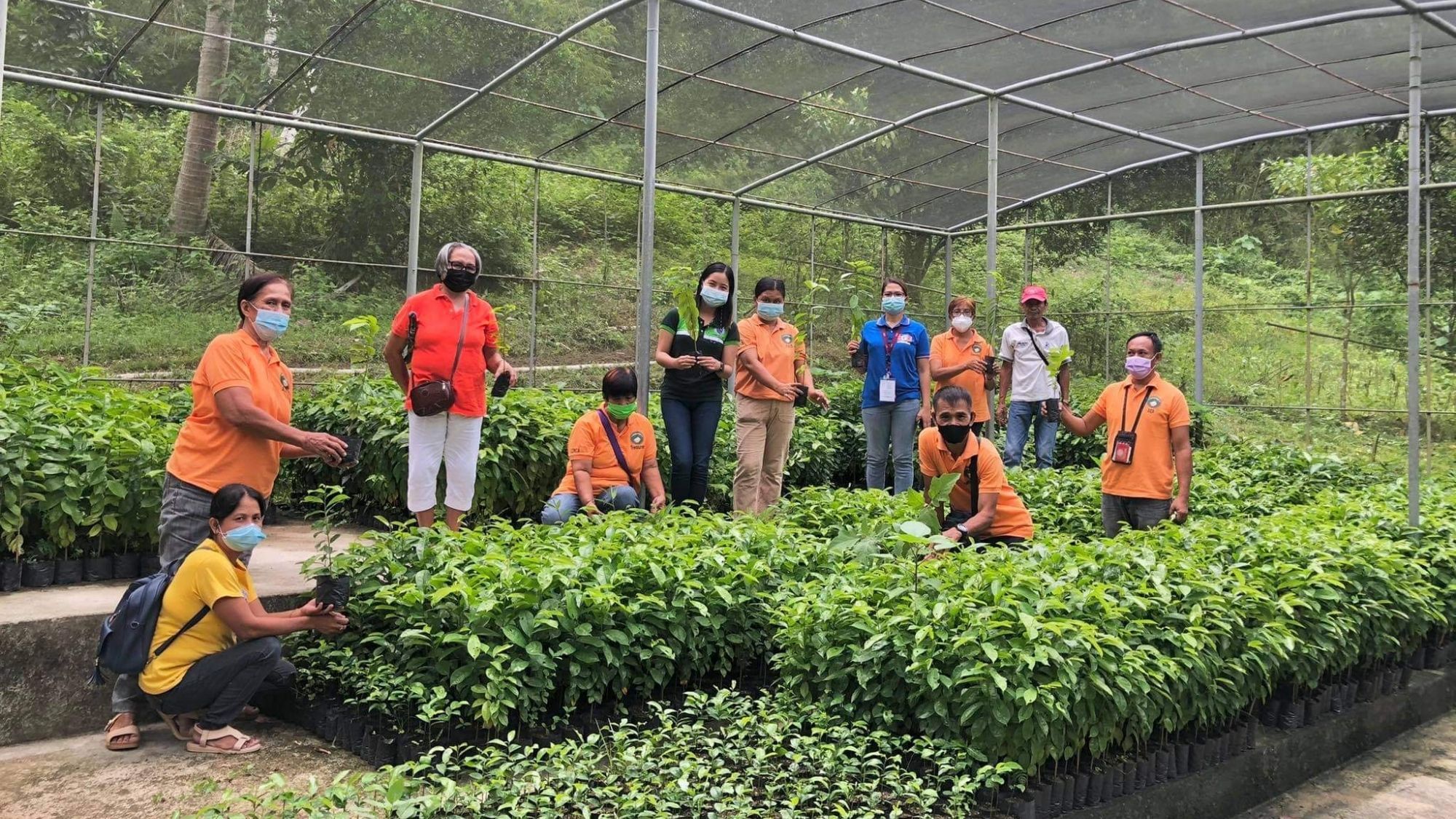Herbal plants provide wide-ranging benefits to health, and are even proving to be reliable income sources for poor farmers of Quezon. This is why the provincial government led by Gov. Danny Suarez is bullish on herbals.
THE Quezon provincial government through the Office of the Provincial Agriculturist Office (OPA) is promoting the production and processing of herbal plants and enlisting the support of various stakeholders in the community to make it a growing industry in the province.
Herbal plants such as malunggay, guyabano, turmeric, oregano and other herbs and spices are being planted in the municipalities of Candelaria, Sariaya, San Antonio, Pagbilao, Mauban, Real, Burdeos, Atimonan, Gumaca, Lopez and in the cities of Lucena and Tayabas, according to Roberto Atregenio Jr., supervising agriculturist and focal person of the herbal program of OPA.
Then head of OPA Roberto Gajo, which has overseen the flagship program Serbisyong Suarez sa Agrikultura of the provincial government headed by Gov. Danilo Suarez, has created the Herbal Industry Development Program (HIDP) which is mandated to provide skills training on production, processing, value addition, and marketing linkage. The program is now being sustained by OPA acting head Leonelle ‘Jing’ Dimalaluan.
The HIDP program promotes the theme of “Pagyamanin at Gamitin ang Sariling Atin (PAG-ASA)” to inspire hope through community participation and self-help initiatives. It involves site-visitation to agri-tourism farms, field validation, monitoring and geotagging of plantation areas such as in Bgy. Malusak,Atimonan. It has conducted skills training on turmeric production and management to Lucban Rural Improvement Club and turns over turmeric rhizomes thru herbal program focal persons.
Lemon grass
Last Monday, Dec. 6, a village level training workshop on lemon grass value addition has been conducted at the OPA Conference Hall in Bgy. Talipan, Pagbilao.
Mary Ann Tan, president of Herbal Quezon, Inc., facilitated the training and provided hands-on demonstration in the production of massage oil, insect repellant and hand sanitizer.
Dimalaluan prodded the participants from various organizations of women, academe, cooperative and herbal planters and expressed the full support of her office to promote the herbal industry.
“Magandang hakbang itong pagkakaroon ng seminar ukol sa mga produkto mula sa mga halamang gamot at itong value adding ay isang sangkap upang magkaroon ng dagdag na pagkakakitaan ang mga nabigyan ng pananim ng aming tanggapan,” Malaluan told participants in lemon grass production.
Processing center
In May 2018, the Quezon Food and Herbal Processing Center (QFHPC) was established at the Provincial Agricultural Complex in Bgy. Talipan, Pagbilao. It caters to the production of complementary foods - rice mongo curls and blend - for the supplemental feeding of over 86,000 underweight children thru the provincial nutrition office.
Quezon has various processing centers in different towns such as the instant salabat and peanut brittle of members of the Rural Improvement Club of Pinagdanlayan in Dolores; kapeng Adarna in Bgy. Masalukot 4 in Candelaria; Ube powder, halaya and ube chips processing in San Andres, the root crops processing center in San Francisco, the uraro production for flour in Mulanay, and the establishment of processing training centers for suman in San Antonio, guyabano in Atimonan, herbal plants in Tiaong and cacao and baked products for Polillo.
Atregenio, also Quezon herbal program coordinator, said the herbal processing center aims for the production of herbs in demand on the market such as lemon grass, turmeric, malunggay, guyabano and banaba. The machines at the center produces semi-processed herbs (dehydrated raw materials), pulverized herbs, powder at tea bags as per specification of the buyers.
The herbal processing center, Atregenio said, produces calamansi juice processed by Unisan and Sariaya processor groups which will be used in seminars and trainings conducted by OPA. All raw and packaging materials come from OPA and juice variants with herbal extracts are produced at the center.
The OPA purchases all raw materials from herbal co-operators of the program to be processed in the facility. All raw materials and packaging are given to the partner groups that facilitate the operation.
Herbal Quezon
A federation of stakeholders called Herbal Enthusiasts Responsible for Business and Alternative Livelihood or Herbal Quezon is the sole province-wide group to do processing and marketing of herbals. The provincial government provides the start-up capital to the group for raw materials and packaging.
The food processed at the center complies with the standards set by DOST-Food and Nutrition Research Institute and the raw materials are purchased from local farmers.
To boost the business of the food and herbal processor and entrepreneurs in the province, OPA conducts trainings on value chain analysis starting with the production of raw materials, processing of products, packaging and retailing.
Herbal products that need to be prioritized in Quezon include herbal teas, herbal soaps, coco suka, herbal wines, herbal candies and ready-to-drink herbal juices.

